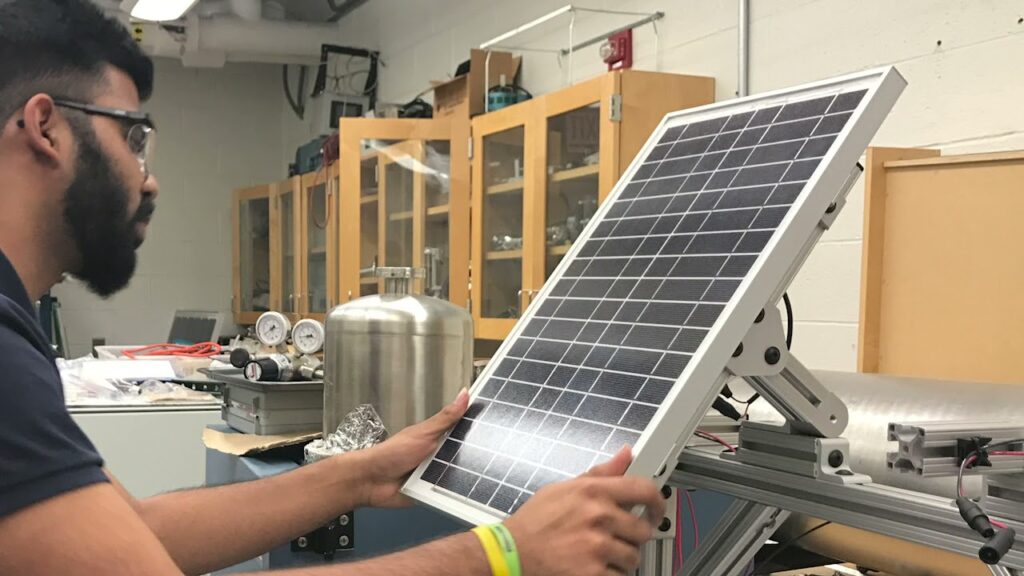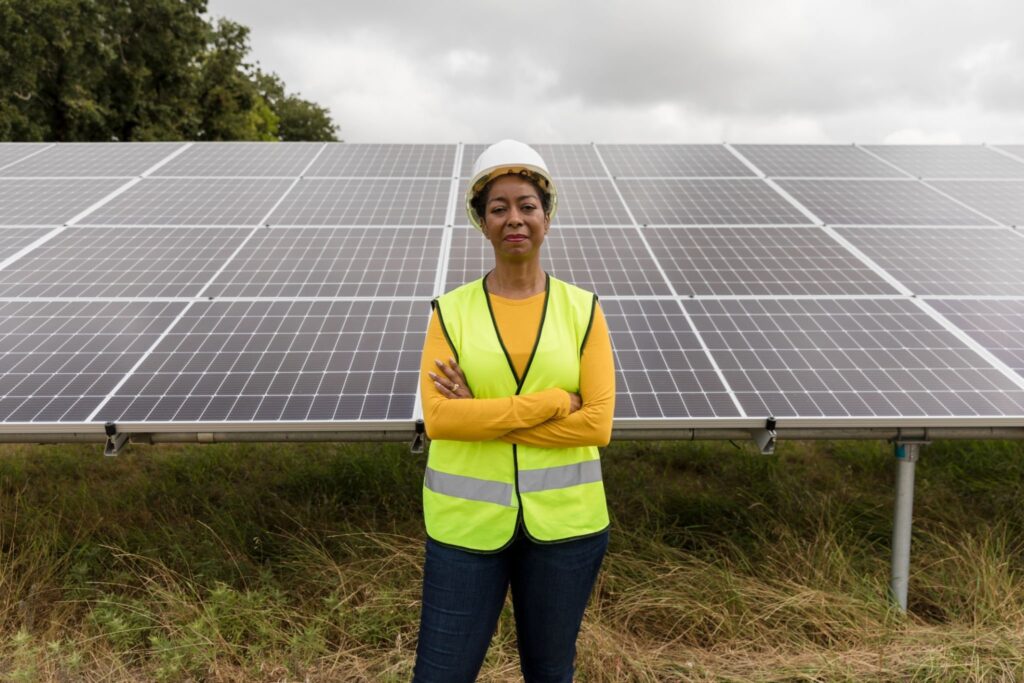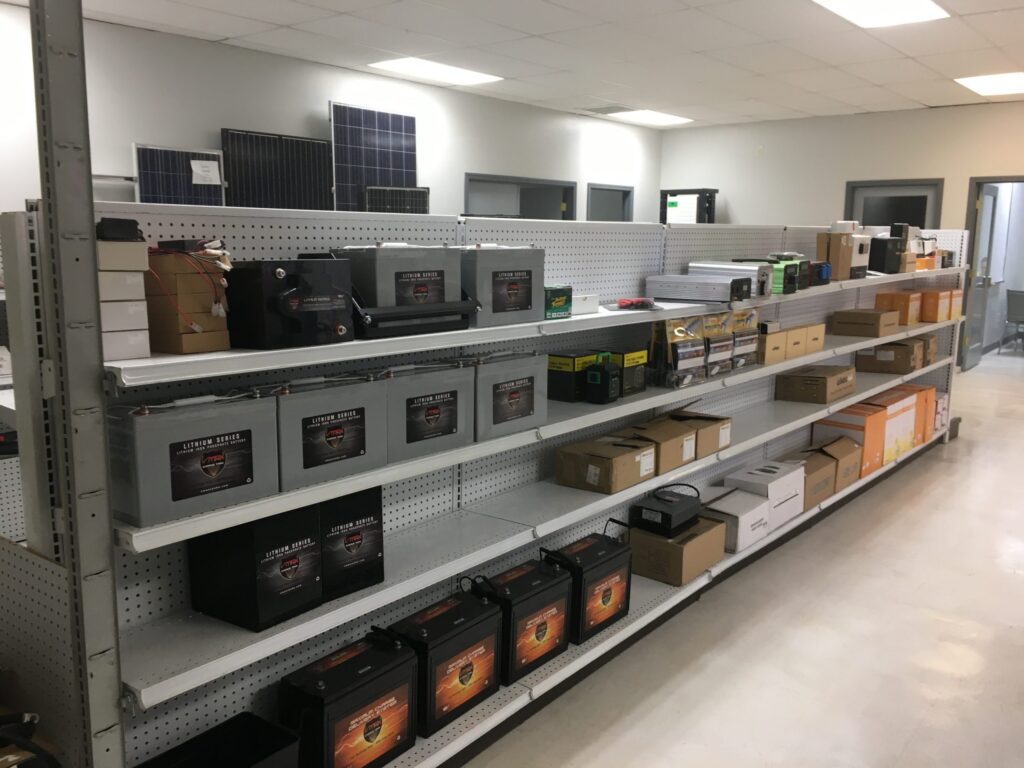Due to its tropical position, Nigeria enjoys year-round sunlight in plenty. With over 2,600 hours of sunlight a year, which is about 7 hours per day on average. According to experts, Nigeria has the financial resources and environmental conditions to access renewable energy sources like solar. Since it is also home to Africa’s largest economy, they want to satisfy its energy demands responsibly, offering a lot of promise for solar innovation in Nigeria.
Prof. Chinedu Nebo, a former Minister of Power, gave a speech at the Nsukka College of Engineering’s 15th Herbert Macaulay Memorial Lecture. “Reviving an Effective Electricity System for Sustainable Development in Nigeria” was the topic of the speech. So, he said that Nigeria’s location in the tropics, where it receives a lot of sunshine, gives it a lot of potential for solar energy. Therefore, to realize this potential, he also stressed the importance of solar innovation in Nigeria. Therefore, he urged the country to make investments in solar technology and infrastructure.

According to a study published in Premium Times by Delta State University lecturer Ikponmwosa Oghogho. He stated that “With solar energy, Nigeria can access roughly 1500PJ which is the equivalent of 258 barrels of oil from solar energy per year. We can achieve this by employing solar equipment with a 5% conversion efficiency over just 1% of the nation’s entire land area. This is for around six months out of the year.” This shows that deeper research into the solar value chain may lead to increased power output. Hence, to ensure the energy future of our economy, Mr Oghogho argued that, Nigeria has to reinvent herself by investing in this important resource.”
The CEO of Ergo Renewable Solar Energy, Consul Akpakwu, also talks about solar innovation in Nigeria. He claims that adequate illumination in the workplace boosts productivity by enabling workers to focus for extended periods. Bad and epileptic lighting can affect a worker’s or student’s productivity at work by impairing vision from a functional standpoint. So, this causes depressive feelings from a psychological and emotional perspective.
Read also about: The Blockchain Solar innovation
He pointed out that the country’s reliance on insufficient traditional power systems has made Nigeria’s power crisis compel the search for dependable lighting options as a substitute. According to him, organisations with constant electricity experience a boost in productivity on both a functional and psychological level.
Moreover, the President of the Renewable Energy Association of Nigeria (REAN), Segun Adaju, urged for increased solar innovation in Nigeria, in a 2019 piece published in The Guardian Nigeria. He pointed out that solar energy in Nigeria has a lot of untapped potentials and that it can give millions of Nigerians who lack access to electricity access to energy.
The Executive Director of the Nigerian Energy Support Programme (NESP), Dr Yusuf Suleiman, has emphasised the significance of off-grid solar solutions in Nigeria. Particularly in rural regions where access to energy is restricted. Moreover, he has underlined the necessity of laws and rules that promote investment in the industry. He firmly believes that solar innovation in Nigeria should be upheld to improve people’s standards of living.
Professor Adeola Adenikinju, an expert in energy economics, argued for the adoption of creative financing structures to boost solar innovation in Nigeria. This was said in a 2019 essay that was published in The Guardian Nigeria. He claimed that to finance the growth of the solar sector, Nigeria must embrace innovative funding techniques like crowdsourcing and green bonds.
Furthermore, he said that there was a significant gap in access to power between rural and urban populations. So, that this situation would make it challenging to grow the domestic economy and combat poverty and unemployment. Also, for rural electricity, he opines that it is important to reduce job overlap. Hence, public-private collaborations in rural power provision should be emphasised. The speaker also established the fact that the government must devote more funds to supplying power in rural areas.
Ifeoma Malo, the Country Campaign Director for Power for All in Nigeria and CEO of the Clean Technology Hub-Energy Innovation Center. He stated that “Power is life in many ways.” With solar innovation in Nigeria, citizens can study more effectively, hospitals can keep life-saving medications without challenges.
Find out how we can use Solar in our daily life
Also, markets can remain open for longer, and small enterprises and industries can develop there. When we use power to access the wealth in our rural areas, Malo predicted that economic growth would increase. Additionally, Malo said that the scenario might potentially provide a huge market opportunity for off-grid renewable energy. She claimed that the problem of rural electrification was growing in scope.
Sahara Power Company’s Group Managing Director, Dr Kola Adesina, also highlighted the potential for solar energy to meet Nigeria’s energy concerns. He said this on Business Day Nigeria. In his opinion, to spur solar innovation in Nigeria, he has also underlined the importance of collaboration between the public and private sectors. He discussed how Nigeria’s solar innovation has to be driven by creative business models.
Also, he emphasised the significance of creating business plans that are specific to the Nigerian market. That can offer both rural and urban areas cost-effective and dependable solar solutions. He also stressed the necessity of government assistance for solar innovation in Nigeria. Specifically measures that encourage the use of solar energy and infrastructure spending. Inorder to promote solar innovation in Nigeria, he urged for more cooperation between academics and the corporate sector. Also, he has underlined the value of Investment in research and development in the industry.
Conclusion
Solar innovation has a huge potential to change Nigeria’s energy landscape. Solar energy offers a promising answer to the nation’s energy problems given the country’s abundance of sunshine. Plus, the need for dependable and economical energy sources. Although there have been obstacles to solar energy acceptance and implementation in Nigeria. Current developments in technology and governmental regulations are fostering a more conducive climate for the country’s solar innovation to flourish. Solar innovation has the potential to boost Nigeria’s economy, expand access to power. Additionally, lessen the consequences of climate change with ongoing funding and support.




One Comment